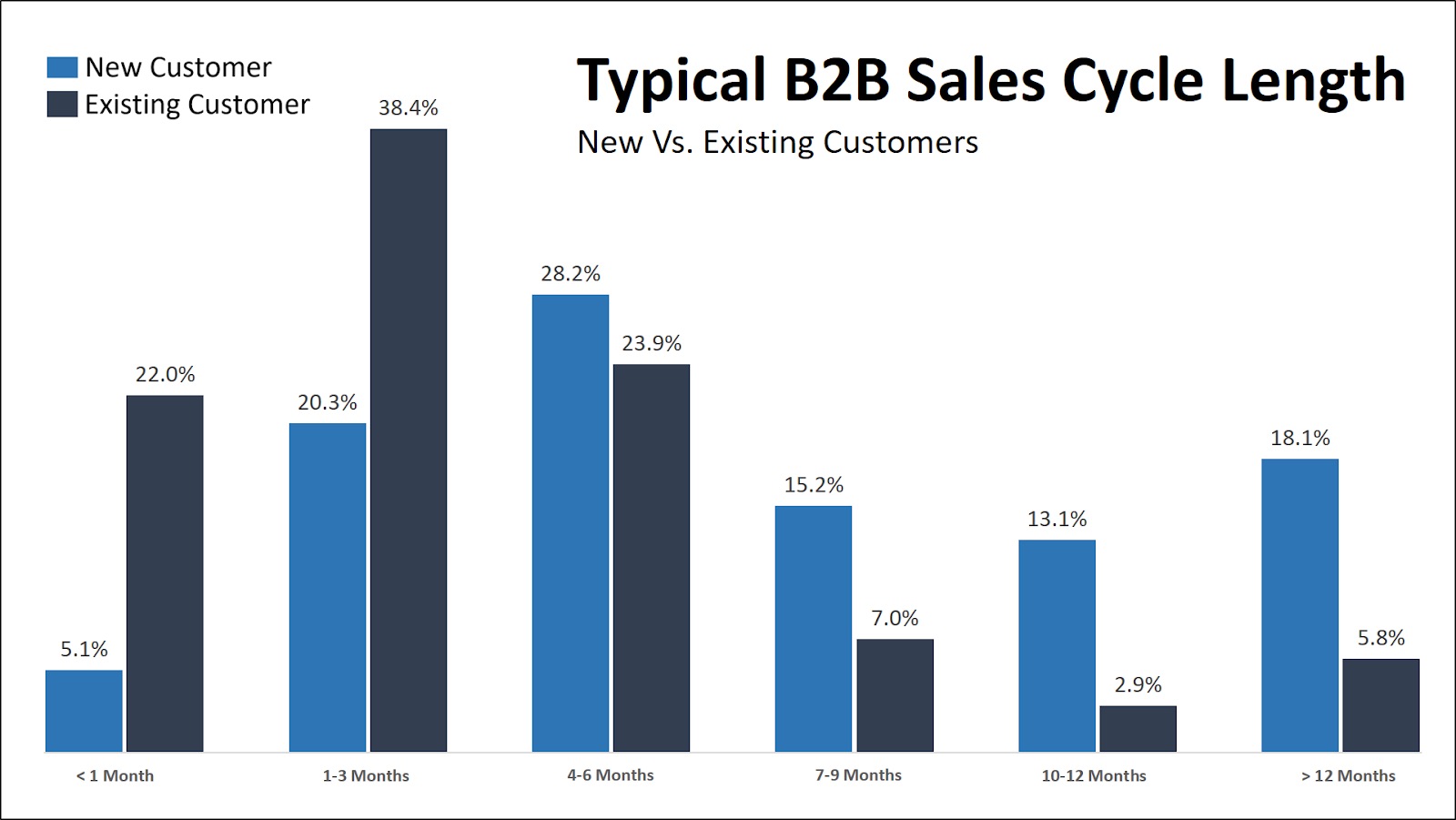Public relations (PR) strategies are the key to driving results for business-to-business (B2B) enterprises of all sizes. Proactive PR controls the messages you present to your audience. It helps to facilitate seamless communication between your company, its partners, suppliers, buyers, prospects, and investors. Effective public relations for B2B companies can shape and maintain a positive corporate image. Moreover, embracing the right PR strategies shows thought leadership and helps drive sales.
One of the most important things to remember is that while it is called “public” relations, much of the work is actually media relations, i.e., trying to place stories in media outlets such as newspapers, magazines, television shows, online blogs, and podcasts.
Have You Evolved with the B2B Buyer Journey?
How up-to-date are your PR and B2B marketing strategy initiatives with the latest buying trends? Today’s customers and clients conduct thorough research before purchasing B2B products and services. They seek assurance that a potential partner has a strong reputation and can meet their specific needs and expectations. Effective B2B PR will help your company showcase its expertise, build trust, and establish lasting relationships.
This article examines the impact of effective PR on mid-market B2B companies. It illustrates why PR matters for your company and highlights key distinctions between B2B and B2C PR. We also look at the merits of outsourced vs. in-house PR and when hiring experts with B2B experience makes the most sense. Lastly, we delve into the critical juncture when PR becomes indispensable and how you measure its effect and make adjustments.
Public relations for a business-to-business enterprise differs significantly from business-to-consumer, or B2C. That difference is your target audience.
Why PR Matters for Mid-Market Companies in B2B
Well-executed PR strategies significantly impact the operations and growth of your business. The primary benefits of good PR for B2B companies fall into internal and external categories.
|
External Impact of B2B PR |
Internal and Ethical Benefits of B2B PR |
|
Brand awareness |
Content creation |
You will see how the items on these lists fall into place as you read through this guide.
B2B Public Relations Strategies Vs. B2C PR
When it comes to public relations, there are differences between B2B and B2C PR. It’s not a simple case of applying the same tactics to different audiences, as each domain has unique dynamics and demands. This section examines seven areas where PR diverges between the two business models. It’s vital that companies recognize these to effectively navigate the nuances and harness the full power of B2B PR.
#1 Target Audience
B2B PR engages decision-makers and stakeholders within other businesses, organizations, or professional circles. This audience includes sales representatives, procurement managers, executives, decision-makers, and other industry experts. B2C PR targets individual consumers or households buying products or services for personal use.
One of the key distinctions between B2B and B2C is that in the latter, you are “broadcasting,” generally, to as many people as possible. In the former, you are “narrowcasting” to a very specific segment of the population.
#2 Complexity of Products/Services
The pain points that B2B products and services help solve differ from B2C offerings. For example, B2B clients might want something to help reduce manufacturing costs, improve customer satisfaction, or increase productivity. As such, B2B PR communications frequently delve into the technical aspects, specifications, and domain-specific expertise.
In contrast, B2C PR campaigns primarily center on selling something for widespread consumer consumption. Think food, electronic devices, and clothing.
#3 Relationship Building
The business-to-business model strives to cultivate long-term relationships with key stakeholders. B2B transactions frequently entail ongoing partnerships, agreements, and complex negotiations. The focus of B2C relationships is less involved. It aims to establish much faster connections with consumers to drive individual buying decisions.
Consumer businesses typically rely on large numbers of customers to stay afloat. A B2B enterprise generally has fewer customers, but each represents a larger portion of a company’s sales. This is why building personal customer relationships is crucial to B2B companies. Public Relations helps open the conversation and solidify the bond once the two sides start talking.
#4 Message Tone
B2B PR is formal, professional, and fact-based. It may use case studies, industry reports, and specific data to inform business decision-makers. For example, a PR campaign for a cloud computing firm might include a white paper, customer testimonials, and webinars.
B2C PR adopts a more informal, emotionally resonant tone, directly appealing to consumer values, aspirations, and emotions. This approach embraces the clever use of captivating images, stories, and videos to evoke emotions that inspire prospects to take action.
In B2B communications, you can’t have enough facts and figures, as few decisions are made on just feelings or emotions. Don’t hesitate to include charts and graphs in your B2B public relations materials when appropriate. This is exactly the type of presentation your audience—who is highly knowledgeable and interested in their industry— wants to see.
#5 Communication Channels
To reach target audiences, B2B PR relies on industry-specific channels, like trade publications, conferences, and various online platforms.
B2C PR utilizes a broader range of channels, especially online social media and influencer marketing. Many business-to-consumer PR campaigns will use traditional paid advertising to reach a wider, more diverse audience.
#6 Sales Cycles
Since B2B business generally involves longer and more complex sales cycles, relationship-building efforts will span an extended period.
This chart illustrates the length of a typical B2B sales cycle.

Data source: Marketing Charts
Most B2C PR aims for quicker, impulse-driven purchases, though strategies can vary depending on the product or service offered.
The level of thought that a company puts into signing a contract for building an office tower, for example, is vastly different from that of a consumer buying a cupcake or even a car. That’s why B2B marketers need to think long-term. It’s definitely a marathon.
#7 Measurement of Success
B2B success metrics revolve around lead generation, conversion rates, customer retention, and the impact on revenue growth. For B2C, successful PR metrics focus more on brand awareness, consumer sentiment, customer engagement, and direct sales metrics.
In a company whose customers number in the dozens or, at best, in the hundreds, it is easy to determine where each prospect came from. Compare the profit from each lead to the cost of your PR campaign, and you have a rough sense of the ROI for your marketing budget.
To Summarize B2B PR Vs. B2C PR
Both B2B and B2C PR can benefit from similar PR strategies but with different approaches. They each use media relations, high-quality content marketing, and storytelling in their PR initiatives. However, they part ways in how each model uses messaging and channels to align PR to the unique characteristics of their target audiences.
Best B2B PR Strategies for Companies

While earned media is vital, it’s only one of many effective B2B PR tactics for your company. Below are several other strategies to enhance your bond with the target audience.
Highlight Your Business Awards
Industry awards are a great way to get good PR for your B2B business, as they help put you firmly in the spotlight. Awards can boost brand awareness, establish thought leadership, and gain the trust of potential customers. Feature any awards in your PR materials, such as owned media posts, blog posts, press releases, etc.
Tip: When highlighting B2B business awards in PR, specify why it’s significant and how it reflects your company’s values and commitment to excellence. Many companies hire an outside firm to handle their award and contest submissions. Often, since they are removed from the nitty-gritty and see only the company’s sheen, a third party will give a more glowing assessment of a company than the firm’s own CEO!
The Importance of Media Relations
It’s a huge mistake to overlook the value of media relations in B2B PR. It helps build meaningful relationships with industry journalists and other media professionals. These relationships lead to positive media coverage that raises brand awareness, generates leads and sales, and creates trust with your target buyers.
Moreover, media relations help establish your company as a thought leader within its industry. So, by sharing your expertise and insights with the right media, you position your B2B company as a trusted source of valuable information.
Anytime your name, or your company’s name, is published in a magazine or newspaper, or is featured in a TV or radio story, it is tantamount to a third-party endorsement of what you do. Industry practice values earned media at 10x the importance of “placed” media, like advertisements or your own blog posts.
Trade Publication Pitches
Trade publication pitches play a crucial role in your B2B PR. When done well, they facilitate earned media coverage in industry-specific journals. It’s a highly-regarded type of reporting for its credibility, thus holding significant value for B2B enterprises. Consequently, a well-written story in a trade publication drives brand awareness. It establishes thought leadership while fostering lead generation and subsequent sales.
Tip: When addressing trade publications, customizing your pitch to align with their focus and readership will help secure coverage. Read several issues of the journal thoroughly to see how it covers stories. Then, pitch an angle that will interest its readership. Check that your account doesn’t repeat something covered in the past four or five years, then direct your pitch to the editor who covers your type of story.
Turn your B2B Stories into B2C
Consider transforming your B2B narratives into stories that engage B2C audiences. Although your offerings target other businesses, expanding your brand to the wider community can develop meaningful relationships. This approach could make your company more relatable and appealing to a broader consumer audience.
For example, take a B2B company that develops medical supplies for US hospitals. In this example, you could share stories of how those products have helped save lives or improve the quality of life for those who use them. You get the idea.
If unsure, consider hiring a digital marketing agency to enhance your B2B storytelling. Agency experts know how to craft compelling content, optimize the right distribution channels, and target your audiences effectively.
Business Relationships Matter
You could certainly cut your own hair, but most people leave this in the capable hands of experts trained to get great results. The same can be said for a professional digital marketing firm. Yes, you can write your own social media and post a few pictures. However, it takes years of training to create a comprehensive, fully articulated media plan that is laser-focused on goals and crafted with a long-term strategy in mind. This is a tactical way to invest money in the B2B world, where a single client can make or break your bottom line.
Social Media Matters More than You Think in B2B PR
Most B2Bs use social media (SM) to engage with existing and prospective B2B clients. These interactions are crucial, but SM’s influence extends beyond the buyer. Using the most appropriate platforms for your business is a great way to connect with industry journalists and collaborate with subject matter experts.
Here are a few creative ways you can engage with your SM audiences.
- Identify and engage relevant audiences via social listening.
- Run contests and giveaways
- Share industry news/insights
- Share your expertise
- Host live Q&A sessions
- Partner with online influencers
- Generate leads and sales
How you use SM to the advantage of your business will vary based on what you want to achieve. The point is to experiment and find SM PR strategies that work for you.
Have you won an award, been featured in an article, or had one of your key executives serve on an industry roundtable? Or, maybe you’ve earned a new certification. Always use your social media channels to inform the world of the exciting things happening at your company.
B2B Community Relations Strategies
When crafting B2B community relations strategies, be intentional. That means partnering with nonprofits or causes that align best with your company’s mission and values. This demonstrates your dedication to social responsibility, benefits your brand’s credibility, and helps establish genuine, purposeful ties within the community.
It’s much better to make a meaningful contribution to a select few organizations – like serving on the Board or chairing committees – than to have a laundry list of nonprofits where nobody knows you.
Use Speaking Opportunities to Generate B2B Leads
Speaking engagements can be a valuable public relations strategy for B2Bs. Industry-related talks provide an excellent opportunity to connect with potential clients and partners, build new relationships, and generate leads. However, it’s not easy to captivate an audience. That’s why you may need a talented speaker to represent your company at conferences, webinars, and other relevant events. Your speaker should know how to deliver engaging and highly informative presentations that showcase your company’s expertise and thought leadership.
Yes, you’re a subject-matter expert, but are you an expert at presenting your subject matter to the public? If you can afford a media trainer, hire one. You’ll be glad you did when you step up to the microphone for the first time. If you can’t, the rule of thumb is to practice your speech in its entirety at least seven times. And do every practice session in front of a mirror. Lastly, have a friend or associate take photos and videos at the event. This footage is invaluable for self-assessment, and you can also use it in your social media campaigns.
To Summarize the Best PR Strategies for B2B
Comprehensive B2B PR strategies are important for businesses of all sizes. They help increase brand reputation, generate targeted leads, and build lasting connections and credibility with your audiences. Beyond earned media, highlight any business awards, nurture media relations, pitch to trade publications, and transform your B2B stories for broader appeal. And don’t forget to leverage social media and embrace community involvement to enhance your brand further.
Outsourced PR vs. In-House: Making the Right Choice
A public relations specialist is not the same as a marketing expert. Each of these roles requires a distinct skill set. Not every smaller B2B concern has a dedicated in-house PR team, but most could use one. In these cases, outsourcing is often the optimal solution, in full or in part. This table outlines the pros and cons of outsourcing PR for B2Bs.
| Outsourced PR Pros | Outsourced PR Cons |
|
|
One of the overlooked advantages of hiring an outside firm is the synergies they can find with their other clients. While it’s convenient to have your marketing person right down the hall, they are unlikely to have the sheer number of contacts and depth of community engagement a firm with multiple clients has. This intangible often proves to be extremely valuable in the long term.
This next table highlights the pros and cons of in-house PR.
| In-House PR Pros |
In-House PR Cons
|
|
|
Does Your B2B Need a PR Department?
Maybe your company already enjoys a well-earned reputation, so does it really need its own PR team? All we know is that reputations are fickle and easily lost under certain circumstances. Some examples are scandals or ethical misconduct (real or perceived), product or service failures, and data breaches. Others could be negative media coverage or issues with poor customer service.
Your company’s reputation is based on words, actions, transparency, and what others say about your products and services. Hiring a B2B PR agency helps strengthen relationships with internal and external stakeholders and also helps maintain them. Returning to the “you could cut your own hair” analogy again, public relations is as much an art as a science. Having an expert on your team—whether in-house or outsourced—is always going to be an advantage.
When Is the Right Time for B2B PR?
The time is always right for B2Bs to have effective PR. But there are critical junctures where efficient public relations is a must-have. Think crisis management, rebranding campaigns, and introducing new products or services. PR also plays a pivotal role in educating clients about offerings they may not be aware of, establishing market credibility, and reinforcing thought leadership. Lastly, good PR helps foster trust in products or services, especially those that demand significant levels of customer confidence.
Bold Entity: Results-Driven B2B PR for Business Growth
Bold Entity is a digital marketing agency with extensive experience. We take a results-driven approach to B2B PR that focuses on growing your business through positive publicity campaigns that increase brand awareness and drive targeted leads to your door.
Summing Up In-House Vs. Outsourced PR
For small-to-medium-sized B2B businesses, leveraging the services of a PR agency, either in full or in part, can yield significant advantages. B2B PR agencies offer expertise, resources, and industry connections that may otherwise be cost-prohibitive for smaller companies to maintain in-house. This strategic partnership helps smaller B2Bs access professional PR support, enhance their reputation, and compete more effectively.
Part of your decision hinges on how cyclical your business is. If you constantly have news to disseminate, an in-house professional might be your best option. But it’s a waste if you don’t have enough work or resources to keep an internal expert busy. So, if you only need a steady flow of social media posts and special news highlighting several times a year, consider employing an outside PR agency.
How to Measure Your Public Relations Impact
Always measure the impact of your PR efforts. How you do this depends on your business and the areas you need to improve. But in all cases, gauge the financial value of your PR strategies. Begin by monitoring key metrics like website traffic, media-generated leads, and shortened sales cycles due to increased credibility. Remember, differentiation from competitors is vital as it helps your business stand out as a trusted source. Also, be mindful and consistent with non-sales brand visibility to keep you top-of-mind for your audience.
Keep a listening ear for things that are hard to measure but critical to building your B2B brand. For instance, are your key executives recognized at industry events? Are they being called to participate in roundtables or asked to comment on news stories? Anecdotal evidence like this shows that your outreach program is working.
Closing Comments
PR strategies benefit B2B companies of all sizes, particularly in brand reputation management. B2B PR works alongside your marketers to foster communication and shape a positive, visible public image for your business. Done right, it helps boost sales and demonstrates thought leadership.
PR for business-to-business organizations is more formal than B2C, targeting decision-makers by emphasizing technical details and building relationships. PR is especially vital during crisis management, rebranding, or product launches. Success metrics may vary, but you should always focus on lead generation and brand awareness.








